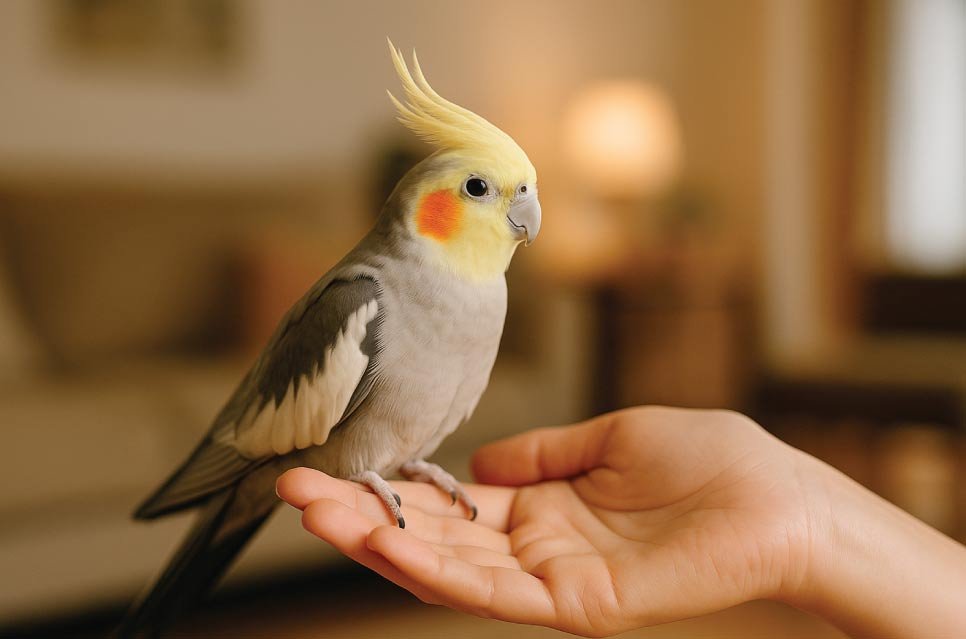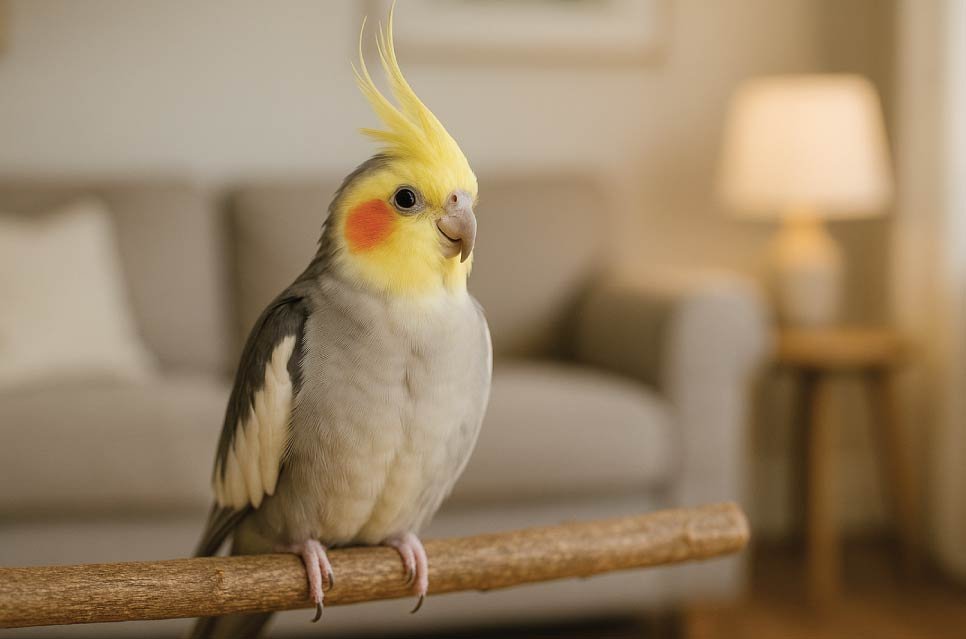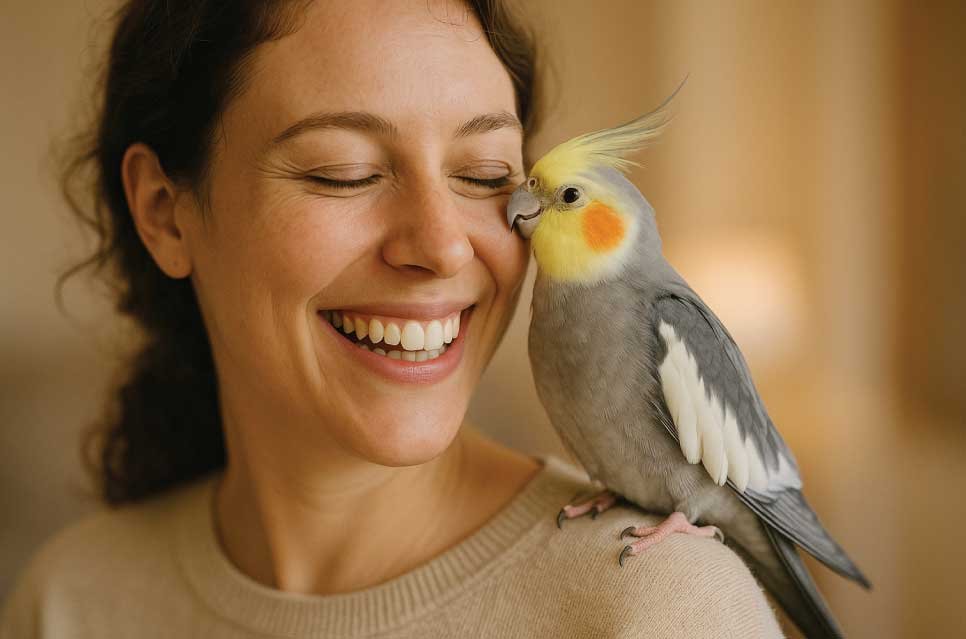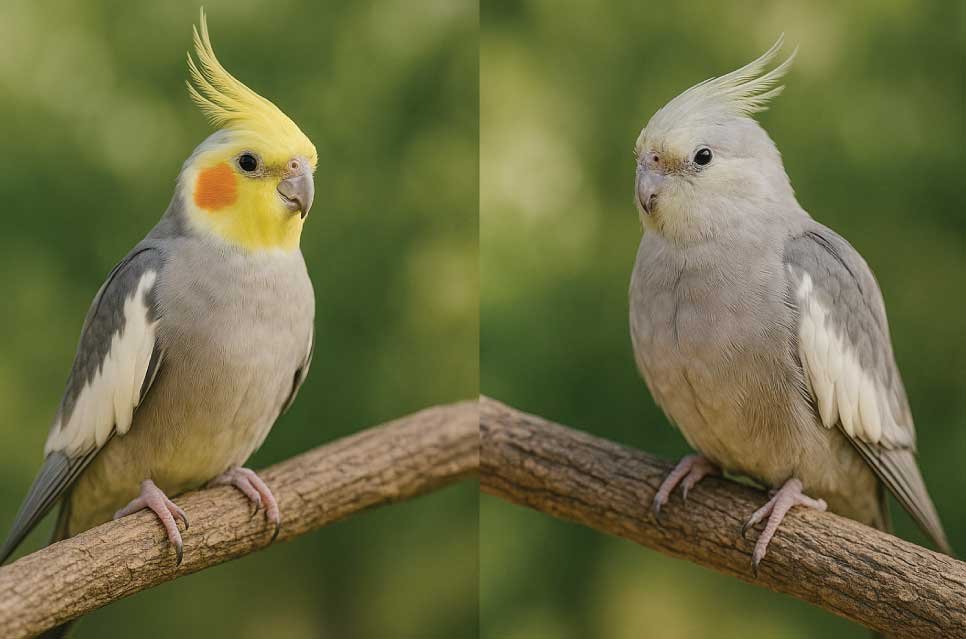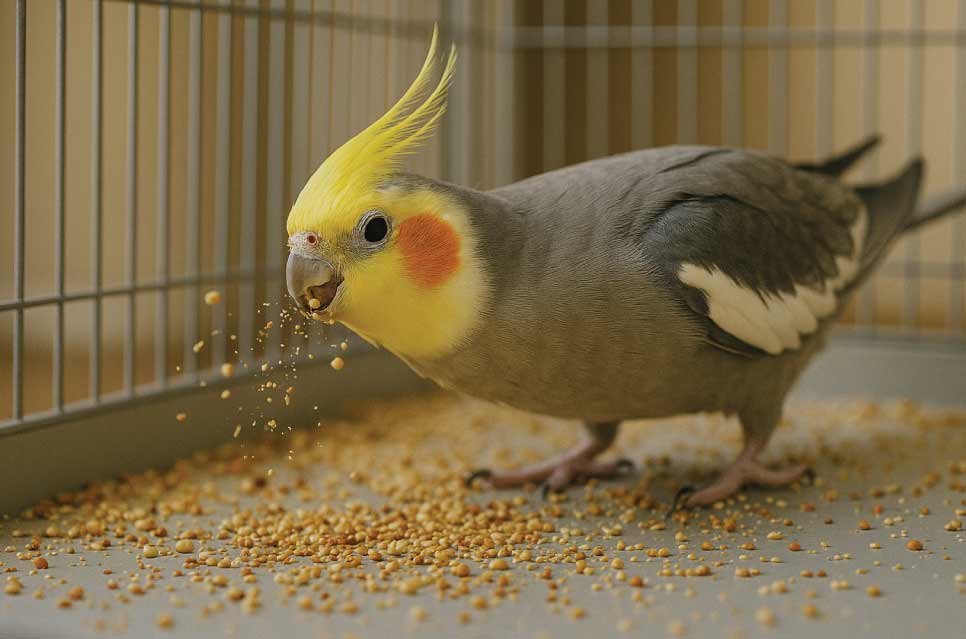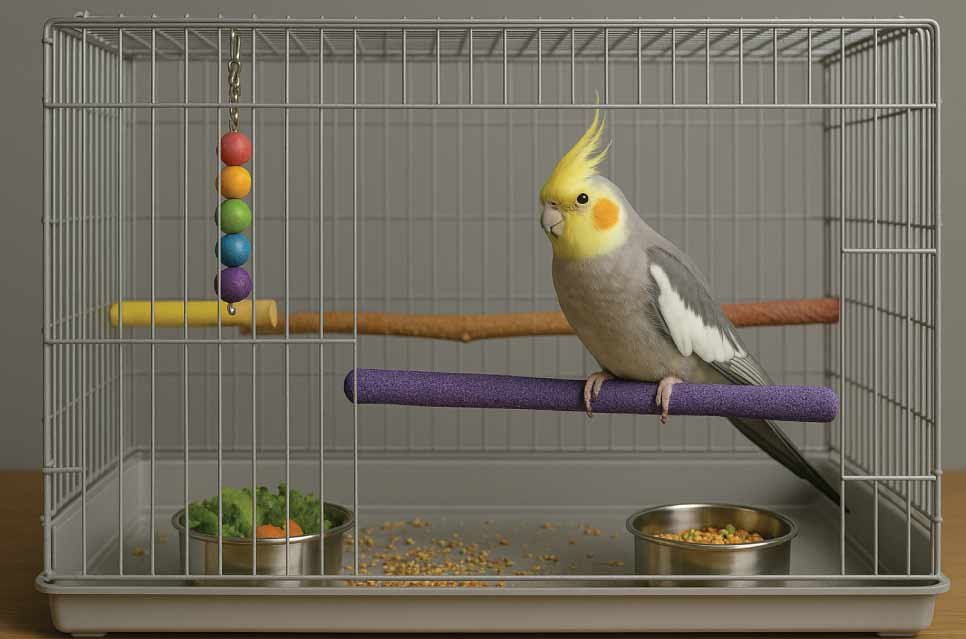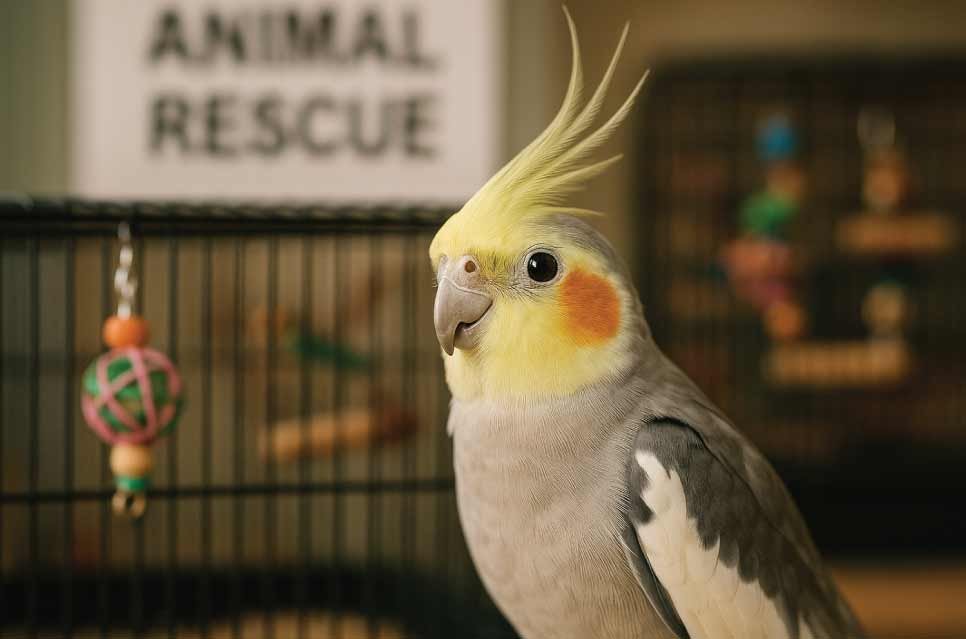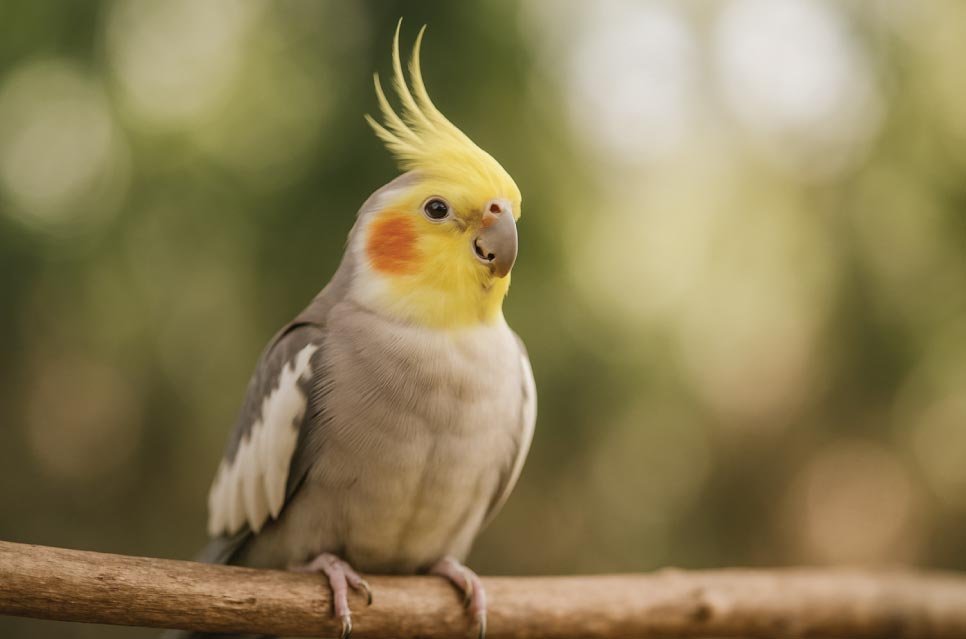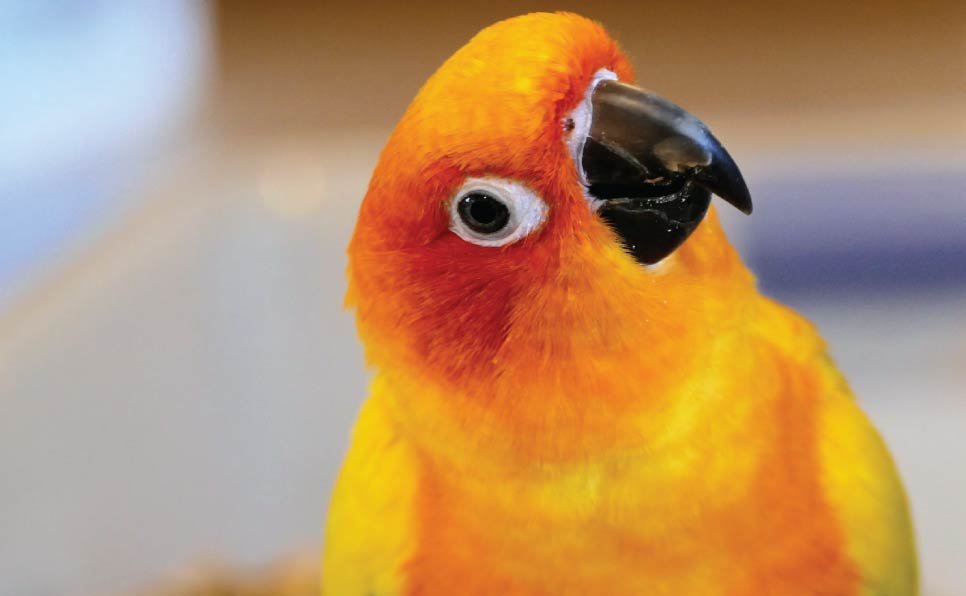Cockatiels are one of the most beloved pet birds around the world. Their adorable crest, affectionate nature, and playful whistles make them a favorite among bird lovers. But if you’re new to bird ownership, you may be wondering: are cockatiels good for beginners? The short answer is yes, cockatiels can be wonderful companions for first-time bird owners. However, like any pet, they come with unique needs and challenges.
In this guide, we’ll cover everything you need to know before bringing a cockatiel into your home, including their pros and cons, essential care tips, and why adoption is worth considering. By the end, you’ll know whether a cockatiel is the right bird for you.
Listen to the Podcast: Is a Cockatiel a Good Pet for Beginners?
Why Cockatiels Are Popular Starter Birds
Cockatiels have a special reputation in the bird world. They’re often recommended as one of the best “first birds” because of their gentle personalities and relatively straightforward care. But what exactly makes them such a popular choice?
Gentle and Affectionate Nature
Unlike larger parrots that can sometimes be intimidating, cockatiels are known for their calm and friendly personalities. They’re affectionate without being overwhelming, making them a good match for families or individuals who are new to birds.
Manageable Size
Cockatiels are small to medium-sized parrots, usually weighing between 80–120 grams. Their size makes them less intimidating than bigger parrots, yet large enough to handle safely and interact with easily.
Easier Care Needs
Compared to more demanding birds like African Greys or Macaws, cockatiels have simpler housing and diet requirements. While they still need plenty of care, their needs are manageable for a beginner.
Cockatiel Talking Ability
One of the charming things about cockatiels is their ability to whistle and mimic sounds. While they don’t usually develop large vocabularies like parrots, their whistles can be adorable and entertaining. Some cockatiels even learn to say a few words, but their true specialty is whistling little tunes.
Want to explore other beginner-friendly bird species? Check out our guide on Best Pet Birds for Beginners.
Pros of Having a Cockatiel as a Beginner
When considering cockatiels as pets, there are many benefits that make them appealing to new bird parents. Let’s look at the positives.
Friendly and Social
Cockatiels are flock-oriented birds, which means they love company. They enjoy spending time with their humans and can quickly form strong bonds. Many owners find that their cockatiel becomes a loyal companion who follows them around the house or happily perches on their shoulder.
Trainable and Engaging
These birds are smart and curious. With patience, you can teach your cockatiel tricks, encourage whistling, or even train them to step onto your finger on command. Training sessions are fun, help build trust, and keep your bird mentally stimulated.
Cockatiel Lifespan
One of the most rewarding things about owning a cockatiel is their relatively long lifespan. With proper care, they can live 15–20 years, sometimes longer. This gives you the chance to build a lasting bond with your feathered friend.
Adaptable Diet
Cockatiels eat a varied diet of pellets, seeds, vegetables, and fruits. This makes their diet relatively easy for beginners to manage. Unlike some exotic birds with strict dietary needs, cockatiels thrive on balanced, accessible foods.
Lower Noise Levels
If you live in an apartment or shared space, noise can be a concern. Cockatiels are quieter compared to larger parrots. While they can whistle and sometimes call out, they’re far less noisy than species like cockatoos or macaws.
Cons of Cockatiels for First-Time Bird Owners
Of course, cockatiels aren’t perfect pets for everyone. It’s important to know the challenges before committing to one.
Social Needs
While their social nature is a plus, it can also be a downside for busy households. Cockatiels don’t like being left alone for long hours. Without enough attention, they may become lonely or even develop behavioral issues.
Mess and Dust
Cockatiels produce feather dust, a fine powder that helps keep their feathers healthy. However, this dust can trigger allergies or require more frequent cleaning. They’re also known to scatter food around their cages.
Cockatiel Cage Size
Despite being a small-to-medium bird, cockatiels need plenty of space to stretch their wings. A cramped cage can lead to stress and health issues. A good rule of thumb is a cage that’s at least 24″ x 18″ x 24″, though bigger is always better.
Health Concerns
Cockatiels are prone to certain health issues, such as respiratory infections, egg-laying problems in females, and obesity if fed too many seeds. Beginners need to be prepared for regular vet check-ups and to recognize early signs of illness.
Time Commitment
Caring for a cockatiel isn’t just about food and water. They need daily interaction, safe out-of-cage time, and a stimulating environment. If you travel often or have little free time, a cockatiel may not be the best fit.
Cockatiel Care for Beginners: What You Need to Know
If you’ve decided a cockatiel might be right for you, it’s time to look at the basics of their care. Good preparation ensures your bird will live a happy, healthy life.
Housing
- Cage size: At minimum, 24″ x 18″ x 24″, with horizontal bars for climbing.
- Perches: Offer different diameters and textures to prevent foot problems.
- Toys: Provide chewable toys, bells, and foraging options to keep your bird entertained.
- Location: Place the cage in a quiet but social area, cockatiels enjoy being part of household activity but also need a place to rest.
Diet
- Pellets: Should make up the majority of their diet.
- Seeds: Offered sparingly, as too many seeds can lead to obesity.
- Fresh foods: Vegetables like spinach, carrots, and broccoli, plus fruits like apples or berries (in moderation).
- Water: Fresh water daily is a must.
Daily Routine
- Out-of-cage time: Allow several hours daily for exercise and bonding.
- Handling: Gentle daily interaction builds trust.
- Enrichment: Rotate toys, introduce safe branches, or teach new whistles.
Veterinary Care
Cockatiels benefit from annual vet visits with an avian veterinarian. Preventive care is key to avoiding bigger health issues later.
For more tips on bird species and their needs, see our guide: Exploring Exotic Pet Birds.
Adoption Philosophy: Why Consider Rescuing a Cockatiel?
At PetSweetJoy, we believe strongly in adoption. Every pet in our household has been adopted, including dogs and cats. This philosophy also applies to birds like cockatiels.
Sadly, many cockatiels end up in rescues or shelters when owners underestimate the care they need. Choosing adoption gives these birds a second chance at a loving home. Adopting a cockatiel not only saves a life but can also be incredibly rewarding, rescued birds often show deep gratitude and form strong bonds once they feel safe.
If you’re thinking about adding a cockatiel to your family, we encourage you to explore adoption options before buying from a breeder or pet store.
Are Cockatiels Right for You?
So, after weighing the pros and cons, how do you decide if a cockatiel is your perfect match?
When a Cockatiel May Be a Good Fit
- You have time for daily interaction.
- You enjoy companionship and want a bird that bonds closely.
- You can manage cleaning and care routines.
- You’re prepared for a 15–20 year commitment.
When a Cockatiel May Not Be a Good Fit
- You’re away from home most of the day.
- You have severe allergies to dust.
- You’re looking for a very low-maintenance pet.
- You aren’t ready for the long-term responsibility of a bird that could live decades.
Comparing cockatiels to other beginner birds, budgies (parakeets) are another popular option. Budgies are smaller, often more independent, and can be slightly easier for very busy households. However, cockatiels tend to form deeper bonds and are often quieter, making them a good balance between affection and manageability.
Conclusion & Call-to-Action
Cockatiels can make excellent pets for beginners, but only if you’re ready to meet their social, dietary, and environmental needs. They’re loving, playful, and relatively easy to care for compared to larger parrots. Still, they require daily time and attention, so they aren’t a “starter pet” in the casual sense, they’re a lifelong commitment.
If you’re prepared for the responsibility, a cockatiel could bring endless joy and companionship into your life.
Want more beginner-friendly bird care tips? Subscribe to our newsletter for weekly advice, practical guides, and inspiration for happier, healthier pets.
Is a Cockatiel a Good Pet for Beginners? Frequently Asked Questions (FAQs)
Not necessarily. Cockatiels can be very happy as single birds if they get plenty of daily interaction with their human family. If you’re away often, a pair might keep each other company, but keep in mind that bonded cockatiels may prefer each other’s company over yours.
Cockatiels aren’t known for large vocabularies, but some can learn a few simple words. What they really excel at is whistling and mimicking household sounds, like ringtones or microwave beeps. If you’re looking for a bird that talks a lot, a parakeet or larger parrot may be a better choice.
The initial cost of a cockatiel can range from $80–$200, but the setup is where most expenses come in. A proper cage, toys, and supplies can add up to $200–$400. Ongoing costs include food, toys, and yearly vet visits, which may average $300–$500 annually
It depends on the pet. Cockatiels are prey animals, so they may feel stressed around cats or dogs. With supervision and a secure cage, they can coexist peacefully, but direct interaction is risky. They may get along well with other cockatiels or small birds, provided introductions are done slowly.
Ideally, cockatiels should have 2–3 hours of social interaction daily. This can include out-of-cage playtime, training, or simply sitting with you while you read or watch TV. Without enough interaction, they can become bored and develop behavioral issues.
Cockatiels can be great family birds when handled gently. They’re generally tolerant and calm, making them safer for children than larger parrots. Still, kids should always be supervised around birds to avoid accidents like squeezing, dropping, or scaring them.

